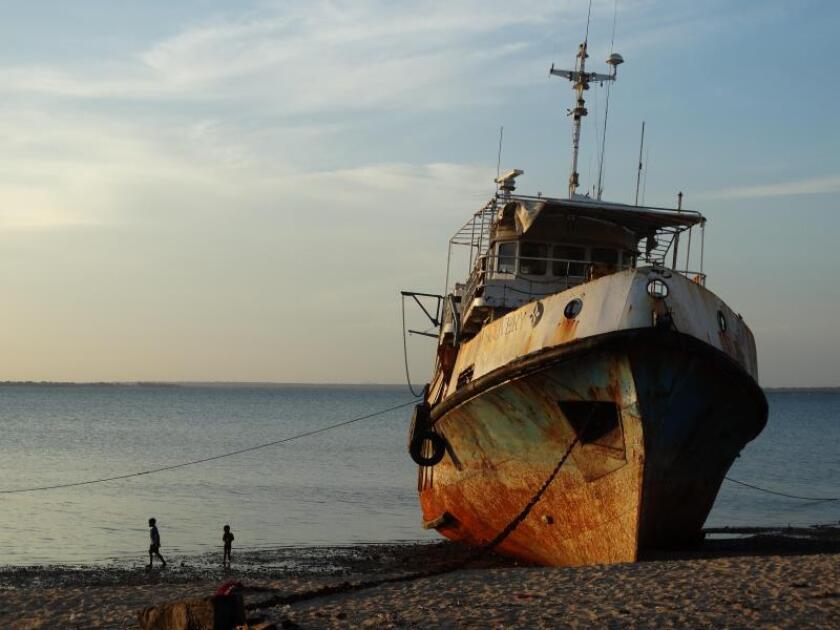Mozambique is an important destination for foreign direct investment (FDI) in Southern Africa. In addition to its abundant natural resources, the country's access to the sea hands it a big advantage over its land-locked neighbours. The government has consistently implemented reforms, maintained sound economic policies, and put in place a privatisation programme for public companies that offers great opportunities for foreign investors.
The World Bank's "Global Economic Prospects – The Turning of the Tide", published in June 2018, shows that while in 2015 GDP growth was 6.6%, the forecast for the next two years ranges between 3.3% and 3.4%, which is currently below the average GDP growth of low-income countries, where Mozambique is listed. The less than impressive figures should not distract from the country's impressive growth over the past decade, however.
Mozambique has faced its set of difficulties in the recent past. The World Bank's report highlights the increase in public debt and the impact of previously undisclosed indebtedness by the government. As stated in the report, high government debt levels are impacting economic activity and private sector activity and that previously undisclosed borrowing is being reflected. The World Bank's forecast is the following: "In metals exporters such as Mozambique, growth will remain subdued, reflecting the effects of rising debt levels on investor sentiment". The World Bank rated the country as being in debt distress by the end of 2017.
Lure of resources trumps risk
Filipe Nyusi has been the President of the Republic and leader of the governing party in Mozambique – Frelimo (Frente de Libertação de Moçambique) – since 2014. Over the past few years there have been clashes and at times military tensions between the party in power and the main opposition party Renamo (Resistência Nacional Moçambicana).
Notwithstanding this, Mozambique's natural resources make it a prime target foreign investors seeking opportunities in sectors such as oil and gas, mining, construction, energy, agriculture and tourism.
Mozambique has the third-largest proven natural gas reserves in Africa, following Algeria and Nigeria. According to recent data from the National Petroleum Institute, these reserves amount to more than 100 trillion cubic feet. The country does not need to import any natural gas.
Although there are onshore fields located in the southern part of the country, the offshore Rovuma Basin area has garnered plenty of international attention, drawing in several world-renowned players such as ENI, Total, Anadarko and ExxonMobil. With reference to LNG, even though there are currently no LNG facilities in Mozambique, it is expected that the first floating LNG (FLNG) facility to be constructed in the Africa continent will initiate its operations in five years (2023). Unlike other African countries, the development of the oil sector in Mozambique bears no resemblance to that of the gas sector.
Mozambique is also known as a metals exporter. It has significant deposits of coal, ruby, titanium, marble, copper and gold, among other mining assets. Major players from Brazil, Australia and India have been investing in mining and it is expected that a continuous investment flow will give Mozambique a competitive advantage in this market.
In all the sectors above, there is enormous potential for investors seeking to enter the market as providers of equipment, know how, services and others.
Legislative landscape and exchange rules
On a legislative analysis, other than a major ongoing reform of the Mozambican Labour Law, approved in 2007 and expected to be concluded before the end of 2018, and of a reform of the foreign investment framework, Mozambique has approved several statutes over recent years to keep attracting foreign investment.
For example, in September 2017, the Council of Ministers granted powers to the Mozambican Central Bank, the exchange authority of the country, to regulate the 2009 Exchange Law. In late December 2017, this regulation was approved and created more flexibility in both exchange procedures and provisions.
It is believed that the recent framework will prove more favourable for FDI due to the fact that commercial banks are now in charge of registering some exchange capital operations, along with their role of channelling requests for approvals by clients through the Central Bank.
A major alteration for foreign investors is the fact that FDI – defined in Mozambican law as any form of foreign capital contribution valuable in monetary terms, which constitutes own equity capital or resources at the own account and risk of the foreign investor, brought from external sources and to be used in an investment project for carrying out an economic activity, through a company registered in Mozambique and operating from Mozambican territory – need only be registered before a commercial bank within 90 days of the date of the investment entering the country. Under the previous framework, the Central Bank had to provide prior authorisation to the investor.
This de-bureaucratisation will certainly play a role not only in accelerating the requests for exchange capital operations but also for foreign investment requests.
Another aspect aiming to clarify and speed up investor provisions pertains to the inclusion of specific rules for the oil and gas sector. The new framework ended the possibility for an exchange regime to be negotiated within the negotiation of concession contracts entered into with the Mozambican state for the purpose of carrying out petroleum operations – defined as planning, preparing and performing of research, appraisal, development, production, storage, transportation and conclusion of such activities or the end of the use of the infrastructures at issue, including putting in place decommissioning plans, sale or delivery of oil (including in the form of liquefied natural gas).
Under the new framework, which intends to provide more flexibility in obtaining financing and in exchange operations overall, entities entering into concession agreements with the Mozambican state may open and maintain bank accounts in both national and foreign currency in Mozambican banks and open bank accounts abroad for the purpose of generally receiving revenues from exports and disbursements of credits and investments. Such entities are also granted with the right to transfer profits and dividends abroad, pursuant to complying with applicable tax and other obligations.
As referred above, for the pursuit of petroleum operations, investors must enter into concession contracts with the Mozambican state. The state is represented by the Empresa Nacional de Hidrocarbonetos (ENH), which participates in all phases of petroleum operations.
With regards to exploration and production and the rights that may be granted under these concession contracts, the Mozambican Ministry for Mineral Resources and Energy recently approved a new draft contract (including annexes such as the joint operating agreement – JOA), which can be accessed on the National Petroleum Institute website.
Although perhaps not as significant, though it is a further sign of de-bureaucratisation and flexibility in administrative procedures, a Simplified Legal Framework for the Licensing of the Exercise of Economic Activities was approved in July 2017.
The purpose of this statute is to establish a framework for a simplified licensing regime and a "mere previous communication certificate of economic activities regime. The list of activities set forth in this latter regime are all activities deemed as not being harmful to the environment, public health, safety and economy in general. One of the main aspects is the inclusion of the mere previous communication regime, where certain activities are no longer subject to a licence to be carried out, a simple previous communication to competent authorities will suffice.
Some of the areas included in the scope of this agreement are: (i) for the simplified licence: agriculture, civil construction, fishing, tourism, etc; (ii) for the mere previous communication: certain types of commercial activities and of provision of services activities.
The new statute does not exempt investors and economic agents from complying with additional applicable sectorial legislation, nor does it exempt them from complying with the foreign exchange framework.
Both authors would like to thank Ana Corrêa Cardoso, an associate in MLGTS' Africa team, for her valuable contribution and assistance in preparing this article.
About the author |
||

|
|
Claudia Santos Cruz Consultant, Morais Leitão Galvão Teles Soares da Silva & Associados (MLGTS) Lisbon, Portugal T: +351 213 817 430 F: +351 213 817 496 W: www.mlgts.pt Claudia Santos Cruz joined the firm as a consultant in 2015 assisting clients on the international and cross-border aspects of their investments in Portugal, Angola and Mozambique. She focuses on banking & finance, corporate & commercial, capital markets, energy and natural resources, oil & gas, shipping and the international aspects of foreign investment into Angola and Mozambique. Claudia has close ties to both Africa and England. She was born in Mozambique; grew up in South Africa and holds dual Portuguese and Mozambican nationality. She trained and practiced as an English solicitor from 1994 to 2005 at DLA Piper and Watson Farley & Williams in the City of London. From 2005 to date Claudia has been based in Lisbon and is registered with the Portuguese Bar Association. Before joining MLGTS she was a partner at Barrocas and AVM. Claudia has written articles for international publications as well as participating as a speaker at international conferences in the areas of investment in emerging markets; oil & gas, corporate, banking & restructuring and shipping related matters. She was the winner of the first "40 under Forty Award" organised by Iberian Lawyer, which distinguished the best 40 lawyers under the age of 40 in Iberia, and is ranked as a leading lawyer by the most prestigious international legal directories such as Chambers & Partners and IFLR. |
About the author |
||

|
|
Luís Gagliardini Graça Partner, Morais Leitão Galvão Teles Soares da Silva & Associados (MLGTS) Porto, Portugal T: +351 226 052 381 F: +351 226 163 810 W: www.mlgts.pt Luís Gagliardini Graça joined the firm in 2001 and became a partner in 2013. He is a member of the corporate and commercial team of MLGTS. He specialises in corporate and commercial and administrative and public procurement law (administrative litigation and arbitration). He is a member of the coordinating team of the Africa Team, an internal structure that guarantees, on a permanent basis, and in close cooperation with the member firms of the MLGTS Legal Circle, personalised day-to-day assistance to clients on matters that involve or are related to the jurisdictions of the African Portuguese speaking countries. He is referred as "Key Portugal-based partner active in Lusophone Africa" in the 2013 edition of IFLR 1000 Energy & Infrastructure Sub-Saharan Africa Guide. Luís has been very active in the area of concessions for public construction, providing start to finish legal advice from negotiation to contractual execution, as well as handling any litigation arising as a result of the construction activities. In 2003 and 2004 Luís acted in an advisory role to the entities responsible for the construction of several of the new football stadiums for Euro 2004 as well in the project and construction of motorways. He has been involved in several M&A operations and the restructuring of companies, but he also has a strong background in litigation related to his practice areas. |
